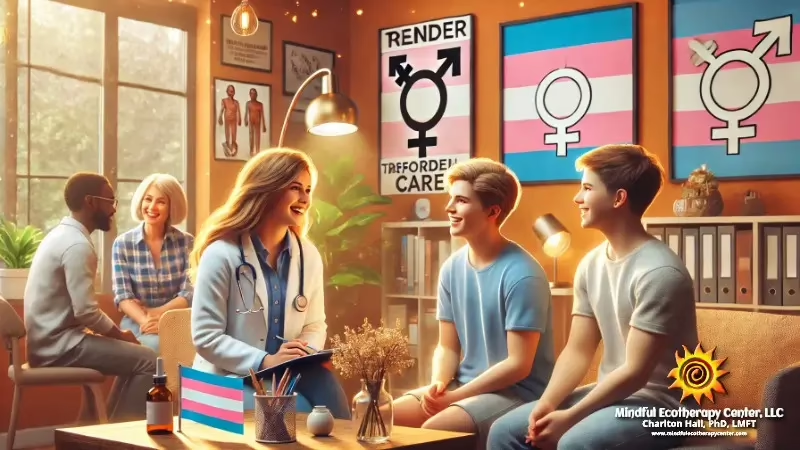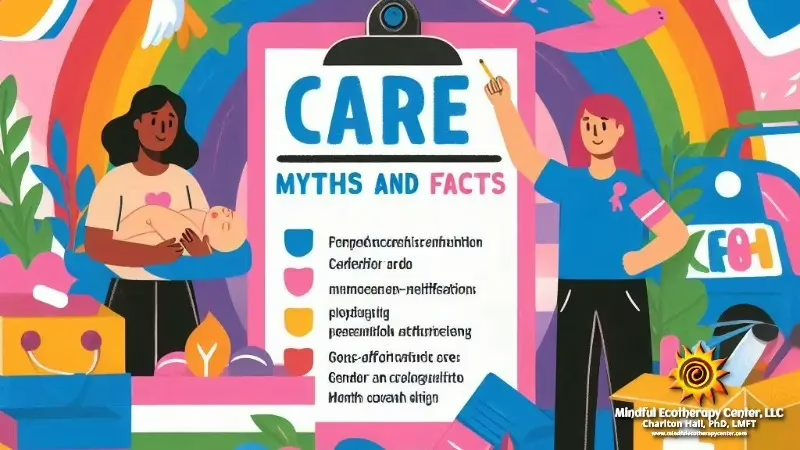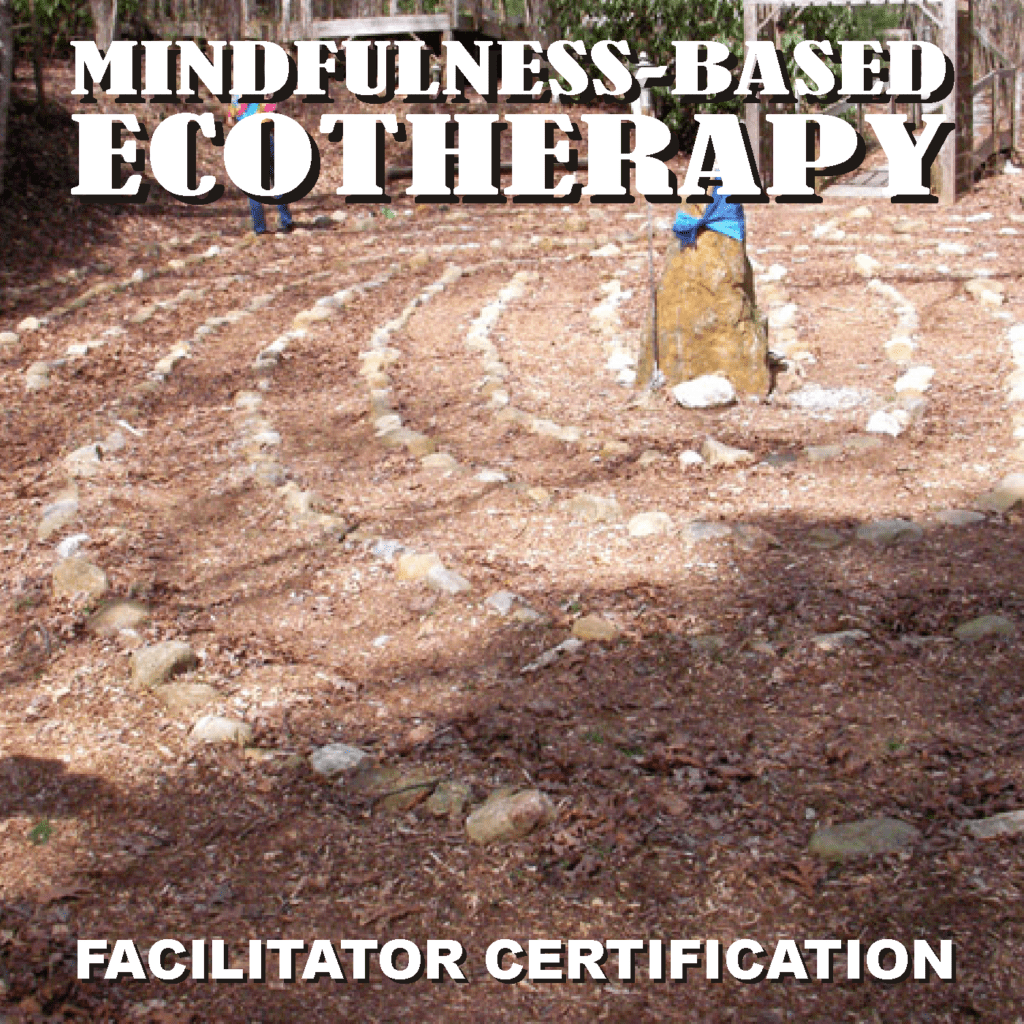
Table of Contents
We are living in a time when misinformation about gender-affirming care spreads faster than facts, and that confusion causes real harm to real people. In response, the Mindful Ecotherapy Center is offering a grounded, compassionate, and evidence-informed space to learn, ask questions, and get accurate information.
Starting Thursday, February 12, 2026, the Mindful Ecotherapy Center will host a FREE online virtual seminar every Thursday from 6:00 to 6:30 p.m. (ET) focused on Gender Affirming Care. These brief but powerful weekly sessions are designed to be accessible, practical, and supportive, whether you are seeking care for yourself, supporting someone you love, or working in a helping profession.
This is not a debate series. It is an education and support series rooted in science using the World Professional Transgender Health guidelines, ethics, mindfulness, and lived human experience.
Why this series matters now
Gender-affirming care has become one of the most misunderstood topics in healthcare and mental health, largely due to an ongoing campaign of misinformation by the current administration. Myths are repeated as facts, fear is used as a political tool, and people are left unsure where to turn for reliable guidance. This series exists to counter that confusion with clarity.
You will explore:
- Myths vs. facts about gender affirming care
- What gender affirming care actually includes (and what it does not)
- How people can access care safely and ethically
- How parents, friends, and family members can offer meaningful support
- Trusted resources for further learning and assistance
Each session is intentionally concise, allowing you to attend without feeling overwhelmed, while still leaving with something concrete and useful.
A mindful ecotherapy approach to gender-affirming care

At the Mindful Ecotherapy Center, gender affirming care is understood not just as a set of medical or psychological practices but as part of a broader relationship between people, identity, safety, and environment.
Through a mindfulness-based ecotherapy lens, you explore how:
- Chronic stress, invalidation, and fear impact the nervous system
- Affirmation supports regulation, resilience, and mental wellness
- Safe environments, including social and natural environments, play a role in healing
- Compassionate presence can be as powerful as information
This perspective helps you move beyond reaction and into grounded understanding, whether you are a parent trying to support your child, a partner wanting to show up better, or a professional seeking ethical clarity.
What to expect each week
Each Thursday session will include:
- A focused topic related to gender affirming care
- Clear myth-versus-fact discussions grounded in current research and standards of care
- Practical guidance you can actually use
- Time for shared questions and themes from participants
You are also invited to submit questions in advance using the form on the registration page. These questions will be addressed during the first meeting or woven into future sessions as part of the ongoing series. This allows the content to respond directly to the actual struggles people face, rather than hypothetical concerns.
How to attend
Attendance is free, but registration is required.
To attend, you can:
- Register directly at https://www.mindfulecotherapycenter.com/product/gender-affirming-care-group/
- Or subscribe to the Mindful Ecotherapy Center newsletter at https://mindfulecotherapy.substack.com/subscribe
All meetings are held via Zoom. The Zoom link will be sent by email approximately one week prior to each session, so you have time to plan and attend with ease.
Who this series is for
This seminar series is open to:
- People seeking or considering gender affirming care
- Parents and caregivers who want accurate, non-alarmist information
- Friends and family members who want to be supportive but feel unsure how
- Therapists, educators, and helping professionals
- Anyone who wants to replace fear with understanding
You do not need prior knowledge. You do not need to have everything figured out. You just need a willingness to listen and learn.
A steady, compassionate space in uncertain times

Thirty minutes a week may not seem like much, but consistent, accurate information delivered in a supportive environment can change how you understand an issue and how you show up for others. This series is about reducing harm, increasing clarity, and offering steadiness in a cultural moment that often feels anything but steady.
You deserve facts. You deserve compassion. And you deserve a place where questions are met with respect rather than judgment.
Join the Mindful Ecotherapy Center every Thursday starting February 12, 2026, and be part of a conversation grounded in mindfulness, care, and human dignity.
Subscribe for updates!
Subscribe to our newsletter to be informed of weekly topics for the Gender-Affirming Care group, and follow us on Substack to join the discussion!









